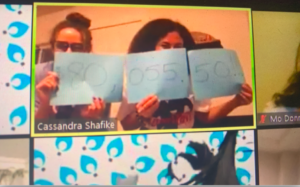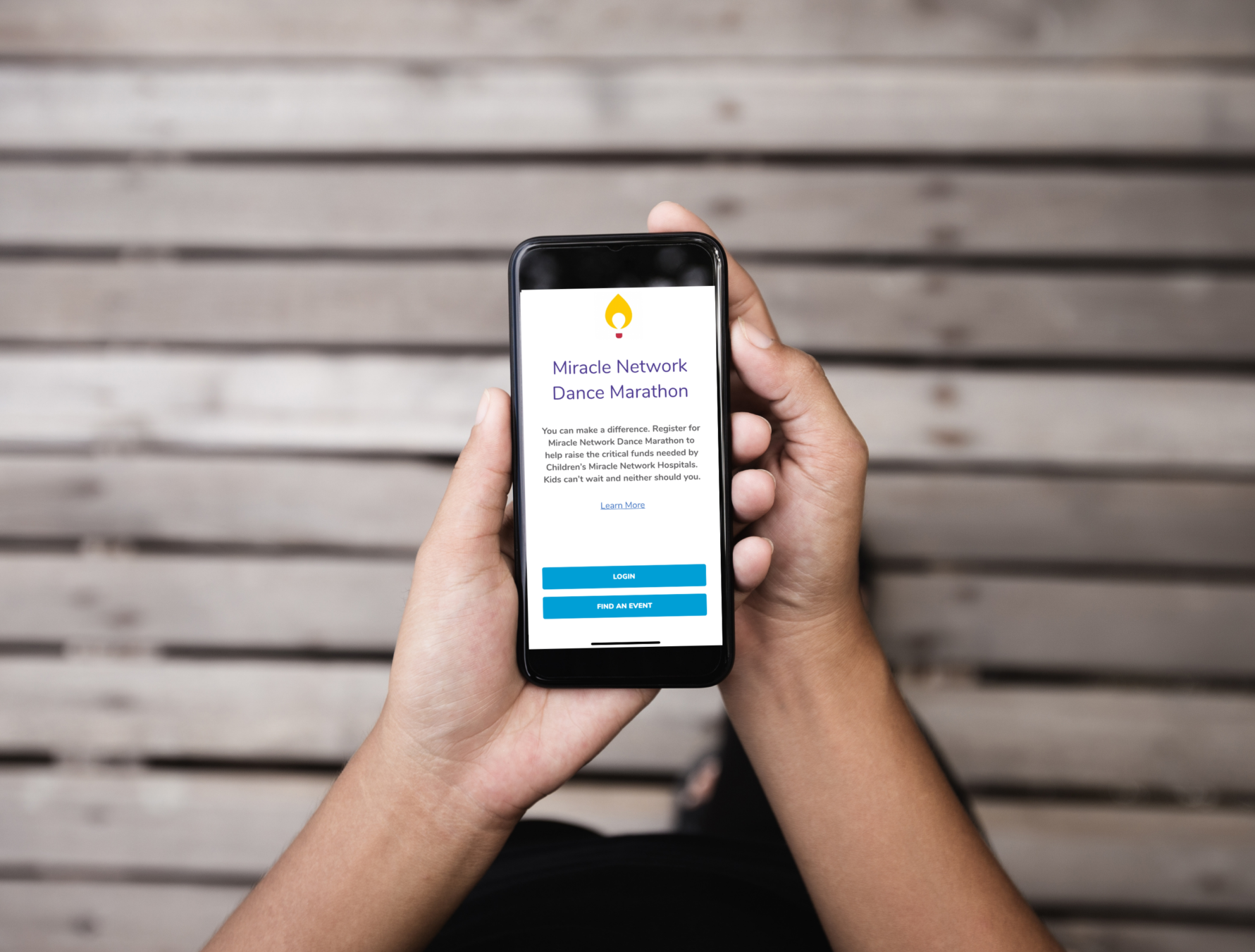What We Learned: The University of New Mexico
All Miracle Network Dance Marathon programs are expected to follow COVID-19 guidelines and the rules and regulations of their campus. If you are unsure, connect with your campus advisor and/or administrators.

It’s crazy to think back to March of this year and how naive I was about the impact the pandemic would have on our event. I and my fellow directors of LoboTHON Dance Marathon at the University of New Mexico thought that we would be able to host an in-person Dance Marathon in November. Luckily, we started planning for a virtual program “just in case”, but we thought that as a worst-case scenario, we would host a “hybrid” event with miracle families Zooming into the event to tell their stories. Then the virus started taking off in our state and we realized that there would be no way we could hold an in-person event. We started scrambling and researching some ideas recommended to me by a student I met at DMLC, including the streaming platform Twitch and the software OBS. We quickly found out we needed a powerful desktop computer and someone who knew how to make a stream look professional. We hired a student who had streaming experience and found (what we thought to be) a location with good wifi. All of the pieces started to fall into place and we started recording all of the content for our Dance Marathon.
The day before our Dance Marathon, we headed to our location to test the wifi. It seemed to work great so we went home and prepared for the day of. The following morning we got to our location three hours before our stream was set to start. Right as we started streaming 15 minutes before our start time, the internet went out. We freaked out and rushed to get all devices off of the wifi in an attempt to reserve any signal for our streaming computer. The wifi continued to cause problems so we decided that during our lunch break we would have to drive across town to another location, set up our equipment, and start the stream back up again in 30 minutes. We ended up pulling it off with only a couple of mess-ups, but the problems didn’t stop there. Our last entertainer had just sent us his set around 3 am the night before

Dance Marathon, and when we finally set it up to be shown, we realized it was roughly 25 minutes shorter than we had scheduled. We scrambled to write a script for our MC for a 15 minute “mini push hour” while the set was playing. The mini push hour ended up working and being very successful, and the rest of our Dance Marathon went fairly smoothly. We ended up raising $80,050, $3,000 more than our goal, with over $11,000 of that being raised in our seven-hour Dance Marathon.
Looking back on that day, we made a lot of mistakes, but we learned so much about how to run a streamed Dance Marathon. My advice to any programs with virtual events coming up in the Spring:
- Find an experienced gamer/streamer who has used the software OBS, and whatever streaming platform you want to use (We recommend Twitch).
- Make sure the streamer you find has a high powered desktop, or you can rent or borrow one from your administration.
- Identify two locations to stream from, one primary location and one backup, both with good wifi that you have tested multiple times (preferably for longer than your Dance Marathon program is to make sure the wifi can handle hours of constant streaming). Look into buying hotspots for other computers/devices that need to be with the streamer so all the wifi can be reserved for the streaming computer. You may also want to consider an ethernet connection so that you are not relying on a wireless connection.
- Build a very detailed schedule. This is even more important than at an in-person event where you can kill time fairly easily. Online, people are more attentive to the times that entertainment appears, miracle families speak, and big events within your Dance Marathon happen. In our experience, we ran very early and our MCs had to adlib a lot. Write your script as early as possible so you can time it out and make sure that you have enough content to fill your time. Additionally, if you’re worried about scheduled acts not filling up their allotted time, have some backup content that you can pull from immediately so you don’t have to scramble to write a push hour as we did.
- Do multiple full run-throughs. We did a couple, but they weren’t as strict as they should have been. We didn’t notice that when we had our Spotify playlist going, attendees could hear people talking in the streaming room. When you do run-throughs, do not neglect any detail. Do every single thing that you will at DM even if you have to have some of your staff pretend to be entertainment or miracle families. Have multiple people in different locations watch the run-throughs so they can take note of audio they shouldn’t be hearing, video they can’t see, or literally any other problem.
- Relax! We were so stressed about putting on a virtual event because we didn’t understand Twitch or OBS. Take some time to relax, or ask your streamer to teach you some basics of the program so you feel better. Establish someone on your team that will literally just watch and listen to the stream so that they can identify errors and not everyone on the team has to be worried about watching the stream while simultaneously helping to run it.
A streaming event is definitely different, but it brought its own type of Dance Marathon magic. We were in small groups and wearing masks to follow our state’s COVID-19 guidelines which made the event seem more intimate and made for a really sweet celebration after our goal reveal. If you do end up having a virtual event, or you want to integrate it into a future in-person event, you’ll absolutely love it and it might just end up surprising you.
Prepared By:
Miracle Network Dance Marathon is an international movement, involving over 400 colleges, universities and K-12 schools across North America that fundraise for their local Children’s Miracle Network Hospitals. Since its inception in 1991, Miracle Network Dance Marathon has raised more than $300 million–ensuring that no child or family fights pediatric illness or injury alone.
Learn more about Miracle Network Dance Marathon:



